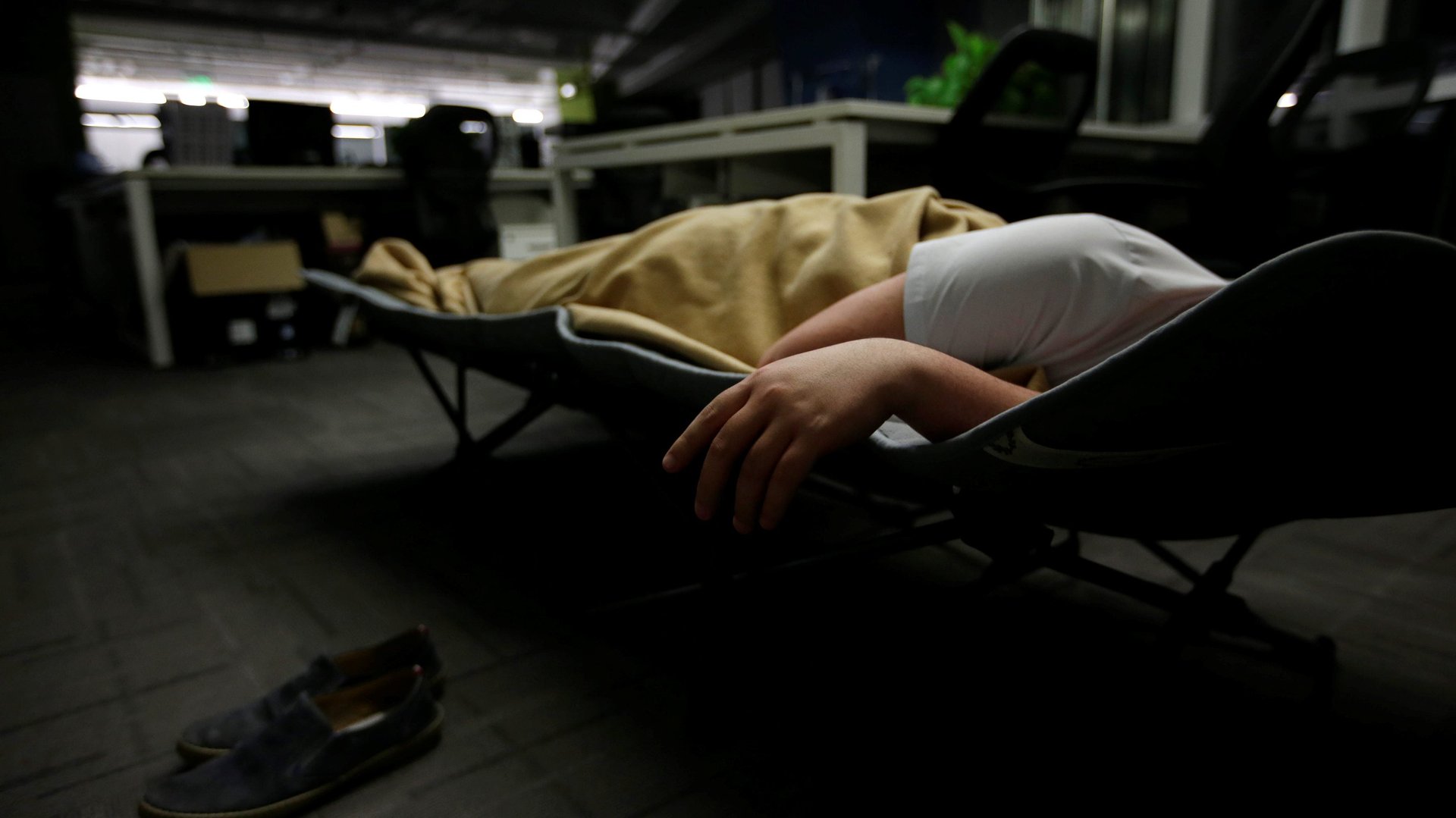Your problem concentrating at work might be long covid
There’s a cohort of workers undergoing a similar experience, their numbers running into the millions worldwide: Sometime in the last two years they caught covid, recovered, and went back to work. Back at work, they soon realize something isn’t right—Concentrating is harder; once-familiar tasks take more effort. Perhaps they suspect the effects of the virus are lingering. But they brush the idea away with the thought: “It’s just me.”


There’s a cohort of workers undergoing a similar experience, their numbers running into the millions worldwide: Sometime in the last two years they caught covid, recovered, and went back to work. Back at work, they soon realize something isn’t right—Concentrating is harder; once-familiar tasks take more effort. Perhaps they suspect the effects of the virus are lingering. But they brush the idea away with the thought: “It’s just me.”
Many of these people are suffering from long covid, said Ted Drake, global accessibility leader at tech firm Intuit. And workplaces need to be aware of it—from an emotional and practical standpoint.
What’s frustrating about long covid is that the symptoms are so varied, Drake told Quartz, after studying its effects among employees at Intuit, the platform behind TurboTax, QuickBooks, and Mailchimp. “One of the things that’s been the toughest is people who are having trouble concentrating and focusing, remembering,” Drake said. Employees often tell him they go to do a task they’ve done a million times before, “but all of a sudden, they can’t remember how to do that task,” Drake said.
It’s worth noting that long covid can also be deeply debilitating, with symptoms ranging from severe pain to serious mobility problems.
What companies can do
Companies can help by opening up forums where people can talk openly about these problems, even if they don’t yet fully understand them, said Drake. Intuit has recently held “lunch and learn” sessions about both long covid and other forms of neurodiversity, he said.
Humera Shahid, Intuit’s chief diversity, equity and inclusion officer and vice president of talent development, said these sessions have helped staff recognize their own symptoms.
“Ted will host a talk on long covid and people will start to say, ‘Oh, I’m experiencing that. Oh, I hadn’t thought of that,’ because it may be very mild,” Shahid said. The virus’s after effect “may be shorter for some, it may be longer for others, it may be more acute. There’s such a wide spectrum.” Part of the workplace’s role is to help people recognize “this is real,” she said.
January 2022 data from the UK suggest 2% of the population is living with long covid. Extrapolate that to the more than 500 million people who have contracted the virus globally, and the number of people now trying to work while experiencing its after-effects is huge. Shahid suggested the numbers are underreported, because often people aren’t certain their experience “counts” as long covid.
Practical help for employees with long covid
Drake said that some of the practical help his company had developed to help employees with conditions like ADHD and dyslexia has proved valuable for long covid sufferers: Simple things like sticky notes, calendaring, and task reminders are useful, he said—even a notepad and pen can help. He also suggests the following:
- Shift meetings to start slightly later and end a little sooner to mitigate Zoom fatigue, particularly for people experiencing short-term memory loss and exhaustion
- Offer flexible schedules, organize no-meeting afternoons, and concentrate work periods to allow for longer breaks
- De-stigmatize mental and physical health conditions, even “mild” ones, by having open conversations and allowing employees to share their stories
Measures like these can make a profound difference, said Drake. Indeed, failure to do so can have bleak consequences: In April 2022 an inquest heard how a former medic and McKinsey trainee in the UK took his own life after struggles with long covid made his work impossible.
Fortunately for most, long covid is temporary. Employees can get back up to speed; they just shouldn’t expect to do so immediately or even quickly. The pandemic, meanwhile, has pushed employers and colleagues to be more accepting of neurodiversity in general, he suggested.
Those thinking of crafting a long covid policy in their own workplace should keep one thing in mind, Drake suggested. Companies “shouldn’t make long covid policies without actually working with people who have long covid,” he said.